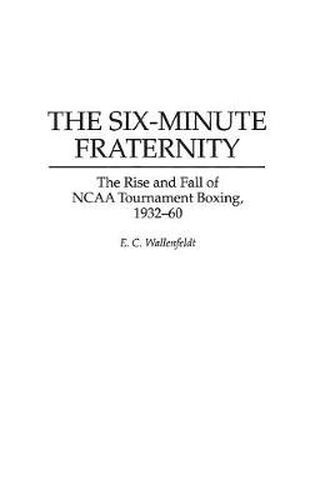Readings Newsletter
Become a Readings Member to make your shopping experience even easier.
Sign in or sign up for free!
You’re not far away from qualifying for FREE standard shipping within Australia
You’ve qualified for FREE standard shipping within Australia
The cart is loading…






NCAA boxing represented a brief, but colorful, chapter in the history of intercollegiate athletics, and it played an important part in the lives of persons making substantial contributions to American society. This story of NCAA boxing is told from the perspectives of former national champions and coaches. One hundred-fifty-six men won 199 NCAA championships. Perspectives of 72 of them and 13 prominent coaches are presented in this book.
Almost from its inception in 1932, coaches and other supporters concentrated on the physical and psychological welfare of participants. They took action to get opponents to know and appreciate each other as human beings. Opponents ate together before their bouts and socialized afterwards. Lifelong friendships resulted. These socializing practices and opposition to the sport caused officials, coaches, and boxers to be very close. Wallenfeldt narrates the history of this sport from its inception to 1960, when NCAA boxing effectively came to an end. Of considerable interest to sports historians and boxing history buffs.
$9.00 standard shipping within Australia
FREE standard shipping within Australia for orders over $100.00
Express & International shipping calculated at checkout
NCAA boxing represented a brief, but colorful, chapter in the history of intercollegiate athletics, and it played an important part in the lives of persons making substantial contributions to American society. This story of NCAA boxing is told from the perspectives of former national champions and coaches. One hundred-fifty-six men won 199 NCAA championships. Perspectives of 72 of them and 13 prominent coaches are presented in this book.
Almost from its inception in 1932, coaches and other supporters concentrated on the physical and psychological welfare of participants. They took action to get opponents to know and appreciate each other as human beings. Opponents ate together before their bouts and socialized afterwards. Lifelong friendships resulted. These socializing practices and opposition to the sport caused officials, coaches, and boxers to be very close. Wallenfeldt narrates the history of this sport from its inception to 1960, when NCAA boxing effectively came to an end. Of considerable interest to sports historians and boxing history buffs.